BY MARK LEWIS
Success magazine Publisher Darren Hardy discusses his Ayn Rand roots, his reactions to the Atlas Shrugged movie, the role of “the compound effect” in achieving real success, and what it means to live the good life.
Darren Hardy is publisher and editorial director of Success magazine and regularly appears on national radio and TV shows for CNBC, MSNBC, CBS, ABC, and FOX.
A self-made millionaire, entrepreneur, and avid admirer of Ayn Rand’s novels, he is also author of The Compound Effect: Multiplying Your Results One Simple Step at a Time — which has been hailed as a modern-day version of Napoleon Hill’s classic Think and Grow Rich.
In this interview, Hardy answers questions from Atlasphere columnist Mark Michael Lewis about what it takes to be truly successful, his insights about America’s cultural heritage, his thoughts about leading the good life, and his reactions to the new Atlas Shrugged movie.
Mark Michael Lewis: Darren, I understand you saw Atlas Shrugged – Part 1 on its opening night. What did you like most and what did you like least about the movie?
Darren Hardy: I enjoyed revisiting the characters and Ayn Rand’s basic philosophy, particularly in the context of our current political and economic climate.
I was disappointed in the direction and production. A work of this magnitude deserves the quality of talent — direction, production, financing, distribution, and acting — that is personified in the book itself. I applaud whoever was behind getting something out; but in my opinion, it didn’t meet the standards of the material itself.
When I read Atlas Shrugged, it was like coming home. Finally someone was saying what I have always felt, but hadn’t put into words myself.
I’m sure it was a difficult task, but Dagny, Hank — my favorite character — and particularly Francisco did not live up to my mental picture. Thus the movie fell below my expectations. I am certain Rand’s vision is even grander, more strict, and more sensitive; and I am certain this version would have fallen significantly short from her vision.
At the same time, I enjoyed a movie based on the philosophy, character, and attributes of Atlas Shrugged, even though it didn’t match my mental pictures.
MML: How did you come across Atlas Shrugged? What impact did reading it have on your commitment to success and your confidence in your right to achieve it?
Hardy: It was recommended — no, promoted — to me with great fervor, by someone I admired greatly. When I read it, it was like coming home. Finally someone was saying what I have always felt, but hadn’t put into words myself. I felt understood. I no longer felt like I was the odd one. It really was the mass, or the mob, that was odd.
This was comforting and emboldening to me. It liberated me to be me, 100% me, as I am, as an individual, not as society would have me be. Even more so in The Fountainhead with Howard Roark. He is who I identify with the most.
MML: Your book The Compound Effect praises the cumulative power of making smart choices and taking confident action through time. What are you hoping to inspire in your readers?
Hardy: Number one, that you are 100% responsible for your life. No one or nothing has power over you. Only you determine your outcomes. The economy, the President, policies in Washington, the weather, the traffic, your spouse, your boss … no one is responsible for how you feel, how you perform and what results you create (or don’t) in your life but you.
You, at all times, in every circumstance, at every moment, are 100% responsible — by what you do, don’t do, or how you respond to what has been done to you. Disease, tragedy, heartbreak? Tell me your excuse and I will point out hundreds of people who had it far worse and chose to respond differently and today have blessed, abundant, beautiful, and wonderful lives.
And when it comes to taking 100% responsibility for your life it all comes down to your choices. Your life at this very moment is the cumulative effect of all the choices you have made, or didn’t make, up to now.
Your choices created your waist line, bank balance, relationship status, the success or failure of your business, etc. If you want to change the direction of your life, it starts by making different choices and then acting on those choices, consistently through time, each action building on the last like compound interest. The longer it builds, the more your results multiply, until the compound effect kicks in and you materialize exponential growth results.
You, at all times, in every circumstance, at every moment, are 100% responsible — by what you do, don’t do, or how you respond to what has been done to you.
MML: You say Hank is your favorite character in Atlas Shrugged. What do you admire most about him? How have you striven to be like him?
Hardy: I am most inspired by Hank’s unwavering strength, his consistent and steadfast holding to his principles. He does the right thing, because it is the right thing, without fanfare. I would like to say John Galt, but that dude is above my head, as that is essentially Ayn Rand herself. Hank, and Hank’s world, I understand and can identify with.
MML: Reading The Compound Effect made me think of Hank Rearden and his ten years of dedication to creating Rearden steel, or Dagny Taggart, as she worked diligently year after year to master the railroad business so that she could one day run Taggart Transcontinental. What is the role, in success, of sowing and reaping?
Hardy: This is one of the reasons I wrote The Compound Effect. I was ticked off. I witness a real injustice taking place in our society. People are being misled, tricked, bamboozled, and taken for fools. We are constantly bombarded with increasingly sensational claims to get rich, get fit, get younger, get sexier — all overnight with little effort — for only three easy payments of $39.95.
These repetitive marketing messages have distorted our sense of what it really takes to succeed. Then those with the sincere interest in learning what it takes to be more successful continually get distracted, frustrated, and disappointed when they don’t experience the results they are after. I was tired of watching it happen!
I wrote this book to return people to the basics, the truth and the core fundamentals of what it really takes to succeed. I wanted to clear the clutter, demystify the truth, and tell it straight, with no fat, bull, or fluff included.
MML: What is the difference between the focus on smart actions through time, that you promote in The Compound Effect, and the “law of attraction” or “magic of manifestation” approaches to self-help that have become so popular over the past decade?
Hardy: The law of attraction — or the way it has been explained, promoted, and exploited — is a bunch of crap. You cannot sit on your couch imagining checks coming into your mailbox. If you do, the guys in the white coats will come and haul you off, and bankruptcy court will come to get that couch. Look, you have to get off the damn couch, walk out the front door and make something happen. Action, not delusion, is the answer.
When it comes to explaining, practically, how all of the sudden you start to see things “drawn” into your reality, here’s how that works: You only see, experience, and get what you look for.
If you aren’t looking for something, you often won’t see it, even if it’s been under your nose the whole time. We are surrounded with billions of sensory inputs each day. To keep ourselves from going insane, we ignore 99.9 percent of them. You only really see, hear, or experience those you focus your mind on.
The Law of Attraction — or the way it has been explained, promoted, and exploited — is a bunch of crap. You cannot sit on your couch imagining checks coming into your mailbox
Did you ever start car shopping and then you started to see the model and make of that car everywhere? All of the sudden it seems like there are tons of them on the streets. More likely, they have been there all along, but you weren’t paying attention to them, and thus they didn’t really “exist” to you before.
So, when you define your goals, and start focusing on something, you give your brain something to look for. You give your mind a “new set of eyes” to see all the people, circumstances, conversations, ideas, creativity, and other resources, so it can go about matching up on the outside with what you want on the inside — your goal.
Suddenly it looks like you are attracting all this stuff into your life, when in actuality you are simply seeing, hearing, and paying attention to what has been swirling around you all along.
MML: What is the role of the mind in the continual refinement and unrelenting focus on those disciplines? How important is a consistent rationality in creating success? How important is it to train your mind?
It is critical to feed your mind positive, inspirational, and supportive input and ideas
Hardy: It is critical to feed your mind positive, inspirational, and supportive input and ideas. This includes stories of aspiration — people who, despite challenges, are overcoming obstacles and achieving great things. Strategies of success, prosperity, health, love, and joy. Ideas to create more abundance, to grow, expand, and become more. Examples and stories of what’s good, right, and possible in the world.
Most importantly, you choose what you feed your mind. You do it to yourself. No one has you locked up forcing you to watch the morning news, read the newspaper, listen to drive time radio or watch the ten o’clock news before you go to bed. All the garbage that is dispensed into your ears and in front of your eyes happens because of what you put your head in front of.
That’s why we work so hard at Success magazine. We want to provide you with those examples, those stories, and the key take-aways you can use to improve your view of the world, yourself, and the results you create. That’s also why I read something inspirational and instructional for thirty minutes in the morning and evening, and have personal-development CDs playing in my car.
I’m feeding my mind high quality fuel and compensating for the garbage and self-doubt that the media tries to feed us, and will succeed if we are not vigilant! Does this give me an edge over the guy who gets up and first thing reads the newspaper, listens to news radio on his commute to and from work, and watches the evening news before going to bed? You bet it does! And it can for you, too.
MML: The USA has always been the place to come for those who want a chance to succeed. Perhaps Jim Rohn said it best: People haven’t plotted and schemed for 50 years saying, “If only we could get to Poland, everything would be okay!” What is the role of choosing to create your life in the face of difficulties and disagreement?
Hardy: I think we have lost sight of our roots, what made us great as a burgeoning nation, society, and culture. Our character was chiseled and forged by hard work, discipline, and even struggle and strife that pushed us to become more and do more than we thought possible.
For the past 60 years we have lived in sheer abundance. It has made us lazy and slothful. You have heard the observation that money tends to skip generations. Why? Because the discipline, character, persistence, and determination that was forged in making the money to begin with, when shared or handed to the next generation, cripples them by not getting the benefit of that same journey upward. This is the same reason why every great empire ultimately failed: They failed to continue to do what got them there in the first place.
Here is a small dose of the truth: The process of success is mostly mundane, unexciting, unsexy, laborious, frustrating, tedious, and many times defeating. Success requires hard work, constant and continual effort, determination, persistence, discipline, mixed with a little pain, hurt and frustration — oh and also sheer exhilaration, joy, and utter elation.
The latter comes far more infrequent that the former, but it more than makes up for the difficulty. It makes the whole journey fun, exciting, and fulfilling.
MML: In Atlas Shrugged the heroes come together in community so they can inspire and work with one another to create the life they want. How important are our relationships and the associations we make with the people around us — our “personal politics” — to creating a thriving life?
Hardy: Have you ever been walking with someone and then suddenly realized you are walking much slower than you normally walk, to match their stride? Have you had the opposite experience where you found yourself walking at a much faster clip just to keep up with the person you are walking with? This is what happens in our lives. We end up matching the pace of the people around us.
Success requires hard work, constant and continual effort, determi- nation, persistence, discipline, mixed with a little pain, hurt and frustration — oh and also sheer exhilaration, joy, and utter elation.
Jim Rohn taught that we become the combined average of the five people we hang around the most. Rohn would say we could tell the quality of our health, attitude, and income by looking at the people around us. The people with whom we spend our time determine what conversations dominate our attention, and to which attitudes and opinions we are regularly exposed.
Eventually, we start to eat what they eat, talk like they talk, read what they read, think like they think, watch what they watch, treat people how they treat them, even dress like they dress. The funny thing is, more often than not, we are completely unaware of the similarities between us and our circle of five.
The influence your friends have over you is subtle and can be positive or negative; either way, the impact is incredibly powerful. According to research by Harvard social psychologist David McClelland, your reference group determines as much as 95 percent of your success or failure in life.
Zig Ziglar puts it even simpler. He says, “If you want to fly with the eagles you can’t continue to scratch with the turkeys.” Watch out! You cannot hang out with negative people and expect to live a positive life.
So, who do you spend the most time with? Who are the people you most admire? Are those two groups of people exactly the same? If not, why not? What is the combined average income, health, or attitudes of the five people you spend most of your time with? Does the answer frighten you?
If so, the best way to increase your potential for whatever traits you desire, is to spend the majority of your time with people who already possess those traits. You will then see the power of influence working for you, rather than against you. The behaviors and attitudes which helped them acquire the success you admire will begin to become part of your daily routine. Hang around them long enough and you’re likely to realize similar successful outcomes in your life.
The best way to increase your potential for whatever traits you desire, is to spend the majority of your time with people who already possess those traits
MML: You say that you like it when you face a steep challenge. What is the role of self-esteem in the compound effect?
Hardy: If change were easy, and everyone were doing it, then it would be much more difficult for you and me to stand out and become an extraordinary success. Ordinary is easy. Extra-ordinary is what will separate you from the crowd.
This is why, personally, I’m always happy when something is hard. Why? Because I know that most people won’t do what it takes; therefore, it will be easier for me to step in front of the pack and take the lead.
I love what Dr. Martin Luther King Jr. said so eloquently: “The ultimate measure of a man is not where he stands in moments of comfort and convenience, but where he stands at times of challenge.” Only when we are presented with those challenges do we get to separate ourselves from other men. Jim Rohn said: “Time will either promote you or expose you.” I also think that, in times of challenge, you will either be promoted or exposed.
When you press on despite difficulty, tedium, and hardship, that’s when you earn your improvement and gain strides on the competition. If it’s hard, awkward, or tedious — so be it. Just do it. And keep doing it, and the magic of the compound effect will reward you handsomely.
MML: Over the past 20 years, you have used the principles you describe in The Compound Effect to build businesses, make millions, and create a tremendous platform from which to impact the world. What are you looking to create in the next 20 years on top of that foundation? What is the vision with which you inspire yourself?
In times of challenge, you will either be promoted or exposed.
Hardy: My highest value in life is significance. I want to know that what I do matters, that it has a positive impact. Not because I am altruistic and am self-sacrificing for other people. Quite the contrary. I measure my contribution by the reach and depth of the impact I am having in other people’s lives for my own soulful reward.
I also measure that value by the rational exchange of money people are willing to trade for my contribution. I don’t do it for the money; I do it for my personal “contribution score card” and personal achievement.
MML: Thank you, Darren, for spending time with us today. I look forward to discovering what you create.
Hardy: My pleasure.
To learn more about Darren Hardy, follow him on his blog, Facebook, or Twitter.
Mark Michael Lewis — also known as “The Thrive Coach” — is a productivity and profitability catalyst who coaches entrepreneurs, executives, and salespeople to get more done, have more fun, and make more money.
Mark is an author, speaker, and entrepreneur with over 20 years of experience in the life optimization field. In that time, he has been a consultant for hundreds of businesses, helped train thousands of people, and provided one-on-one coaching to hundreds of individuals and couples.
To learn more about Mark and his work, check out his Atlasphere profile and his videos.

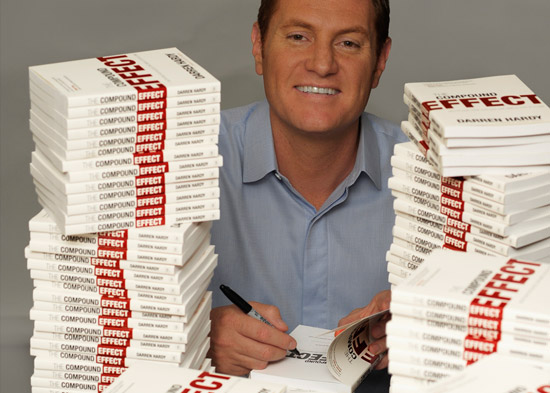
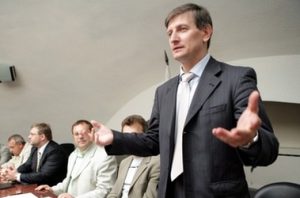
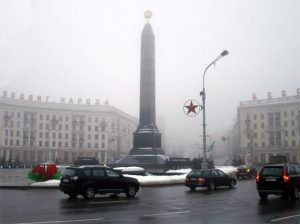
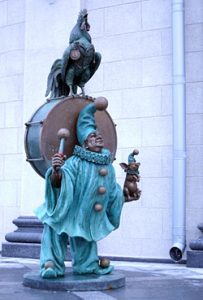 I don’t know, but I hope he will be released in the near future. But that night, my biggest concern was to have everybody alive, before even free. Because the situation was really, really very tense. When everybody is out of prison, when everybody is free, then we can have a more reasonable discussion.
I don’t know, but I hope he will be released in the near future. But that night, my biggest concern was to have everybody alive, before even free. Because the situation was really, really very tense. When everybody is out of prison, when everybody is free, then we can have a more reasonable discussion.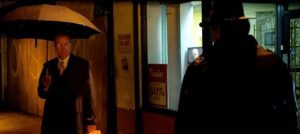
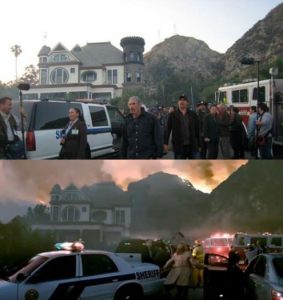
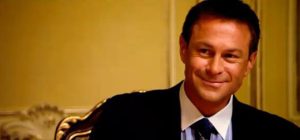
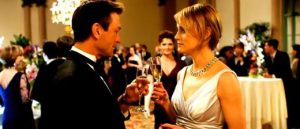















 I can tell you that the movie opens in a diner, and on the diner’s TV, on CNBC, we see Wesley Mouch and James Taggart in a studio, and from a remote feed is Ellis Wyatt, as three talk show guests discussing oil and other current events.
I can tell you that the movie opens in a diner, and on the diner’s TV, on CNBC, we see Wesley Mouch and James Taggart in a studio, and from a remote feed is Ellis Wyatt, as three talk show guests discussing oil and other current events.